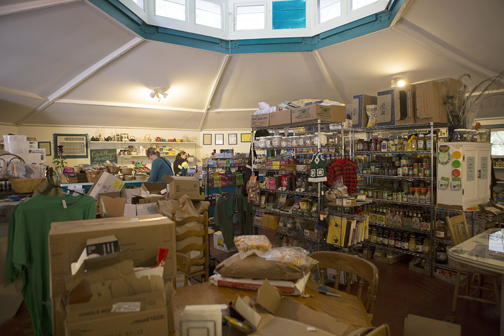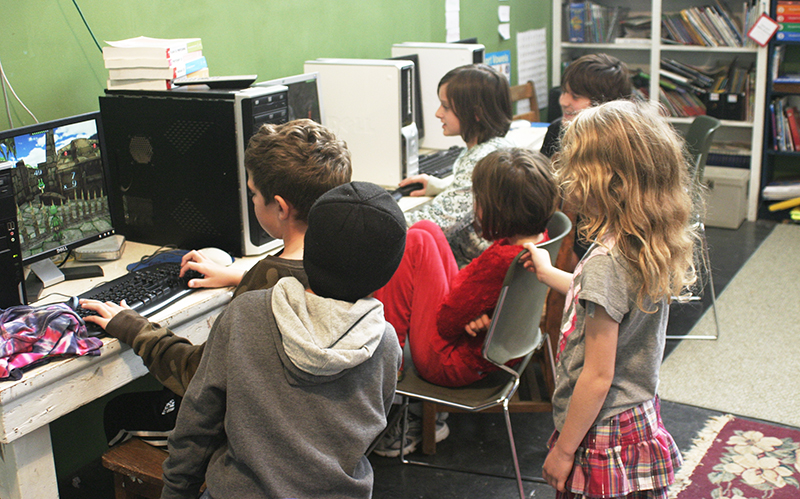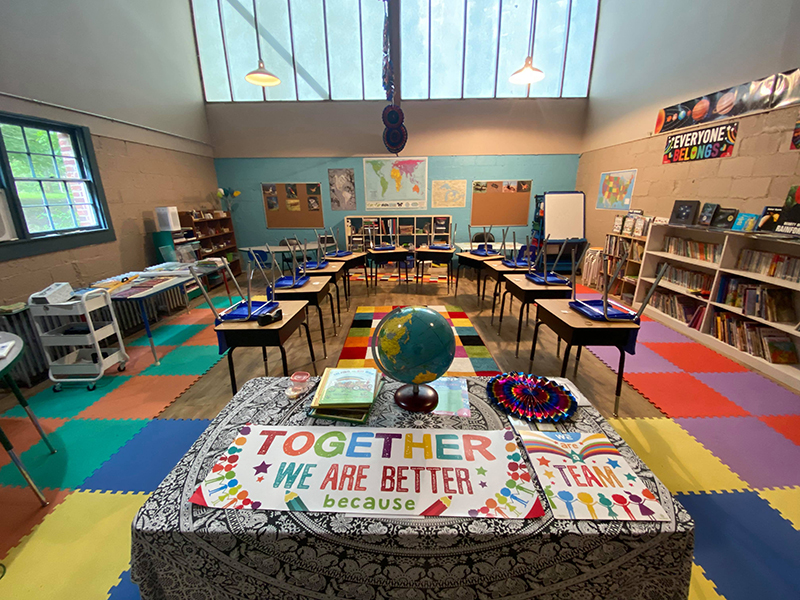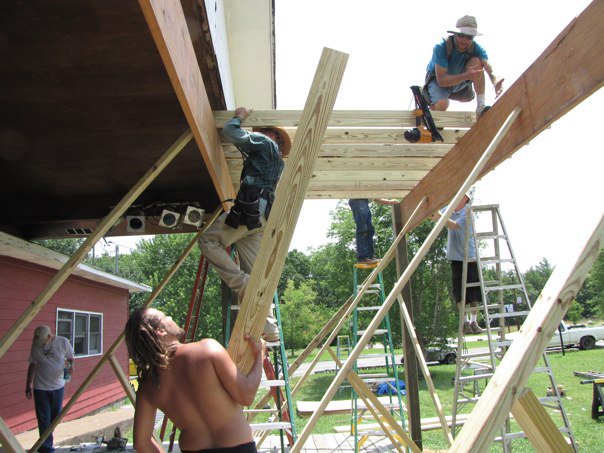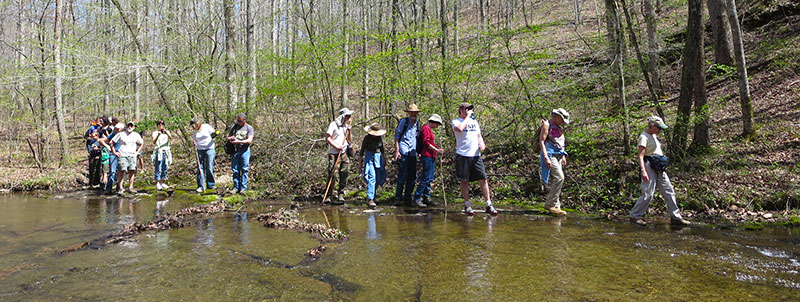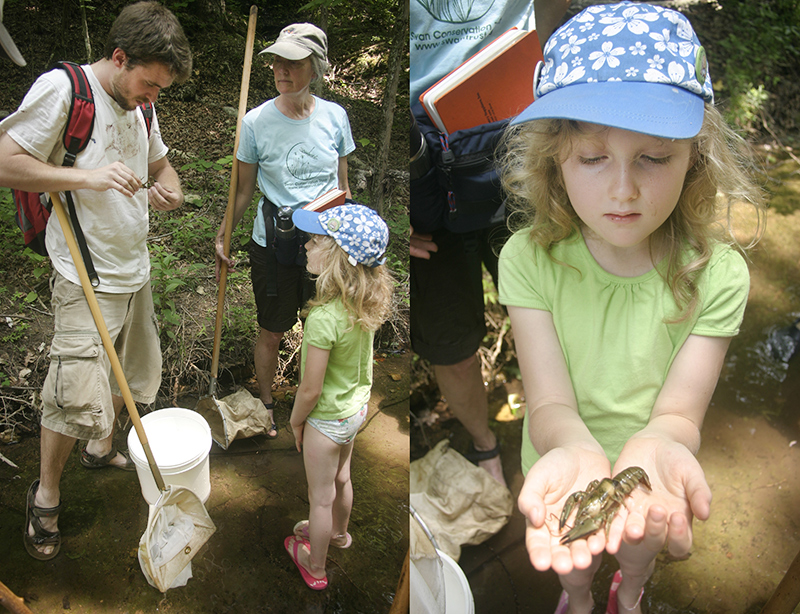From the beginning, we described The Farm as a small town; over the decades, this has become more and more true. As our lives have become more independent, to gain a better sense of what we are, one must take a step back to see the overview, a village of people who are each dedicated to spiritual and environmental principles. What is known today as an Ecovillage.
Many people wrongly assume that an Ecovillage means all who live there are “off the grid,” living in homes constructed of natural, locally sourced materials, growing all their food. While that may be true for some, an ecovillage is certainly not limited to the confines of that definition.
The criteria for what constitutes an “Ecovillage” primarily originated from a 1991 study called “Ecovillages and Sustainable Communities” by Robert and Diane Gilman, commissioned by the Gaia Trust, founder of the Global Ecovillage Network.
Because the many Ecovillages around the world are so diverse, this criteria maintains a broad perspective that has allowed projects from city centers to cohousing developments to rural farms to fit within the parameters and meet most, if not all the key requirements.
Here is the statement that came out of this study:
An Ecovillage should be “human-scaled, a full-featured settlement in which human activities are harmlessly integrated into the natural world in a way that is supportive of healthy human development, and can be successfully continued into the indefinite future.”
As you scroll down this page, , I’ll demonstrate how The Farm Community checks off all the boxes of what it means to be an Ecovillage in the 21st century.
Douglas Stevenson, 50+ year member of The Farm Community
This Season’s Farm, a reference to Stephan Gaskin’s Book, This Season’s People, acknowledges that the cast of players is ever-evolving.
Human Scaled
What this means is that the size of the community should be not too large and not too small. Most range from 50 to 250 people. Less than 50 and you become more of a homestead, almost like a small commune, or have a land-sharing arrangement. As the population grows over 250, it becomes much harder for people in the community to know each other. This is how schisms develop, an “us and them” mentality. A population of 250 is right at the edge of where everyone can know each other by name, the names of the children, and what triumphs or struggles are taking place in each other’s lives. This forms the fabric of support that allows community members to support each other in times of need.
The Farm‘s population is currently around 225 people. Maintaining connections takes effort, and things like shared meals, parties, music events, and annual celebrations, provide opportunities for people to mix it up with each other and are essential for maintaining that human connection.
An Ecovillage should be Full-Featured.
To be a true village, a community should have many of the elements it takes for any small town to function. This is where The Farm Community stands out in alignment with the definition of an Ecovillage.
The Farm Store provides a place for people to purchase food and other necessities for day-to-day life without driving to one of the larger, nearby towns.
The Farm Community has its own state-approved school, grades 1 through 12. It serves not only our children but families from the surrounding area as well.
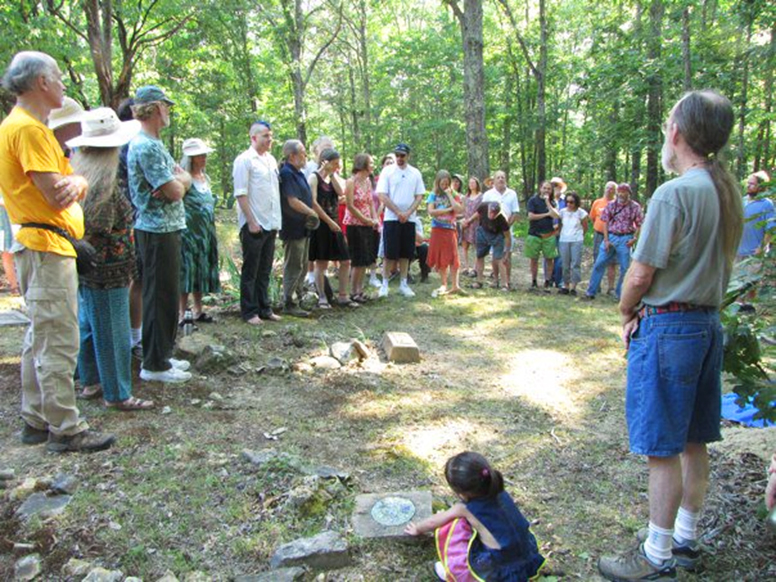
Perhaps one of the most significant features is our cemetery where over 100 members, former members, and residents are buried. This place stands as a testament to our 50-year history of living together and plants deep roots in our connection to the land and to each other. It can be these times of shared sorrow and grief that create the deepest bonds. To learn more about The Farm Cemetery, click here.
People need a way to support themselves and earn a living. There are numerous small businesses as well as nonprofits within the community that provide employment. Over the decades only a small percentage of our residents have gone outside the community for work, typically those in the construction trades or working in the medical field.
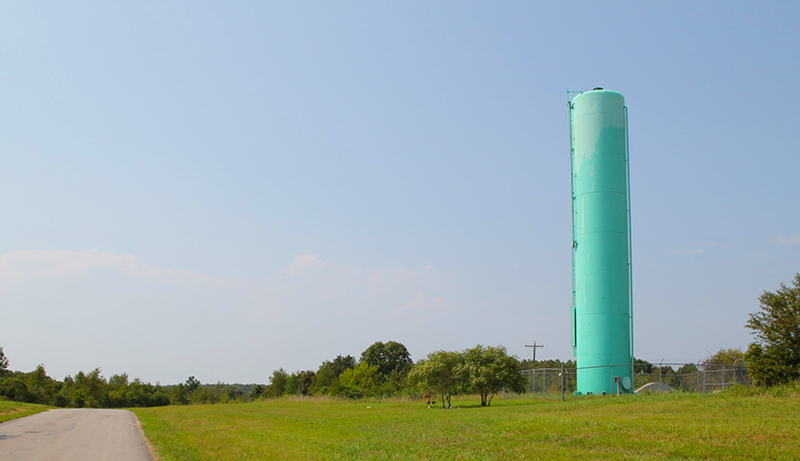
The Farm has a well that provides water to the entire community.
We use between 25,000 and 50,000 gallons of water per day, more in the summer when people need to irrigate gardens. The water tower holds 25,000 gallons, making it a one-day reserve should the area lose power.
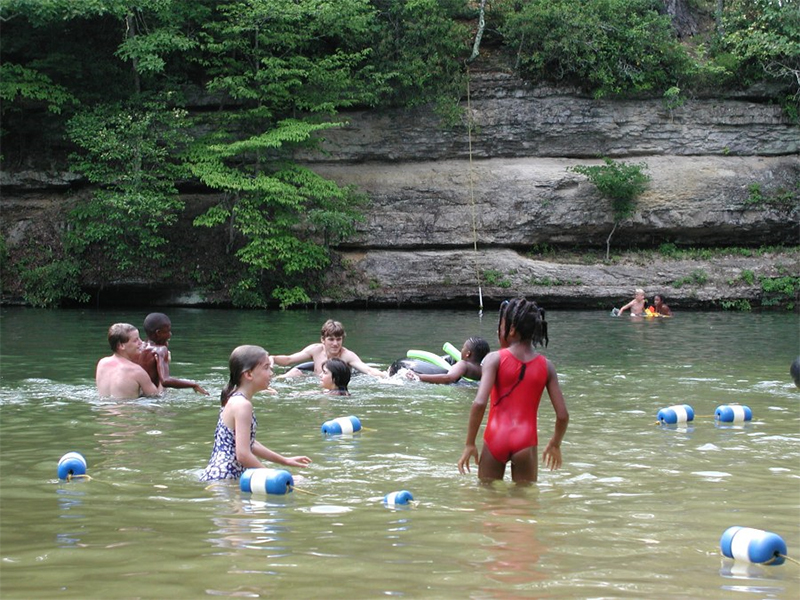
Our swimming hole includes a sandy beach plus lifeguards in the summer.
—————————————————————
Harmlessly integrates human activities into the natural world
Over 1000 acres of The Farm’s 1750 acres are kept completely wild and with no development, used primarily for by residents for hiking.
All residential areas are merged with the hardwood forests along ridge tops leaving valleys separating neighborhoods undisturbed.
Swan Conservation Trust, a nonprofit founded by Farm members in 1994, now owns and manages an additional 1475 acres as a nature preserve surrounding The Farm Community. These can bew identified in the map above which names the various parcels purchaseds by Swan Trust, the Star Branch, the Smith parcel, the Baggs land, and The Cunningham tract. The Stillhouse Hollow Fals State Natural Area was created by Swan Trust working in collaboration with another land trust and state agencies.
Altogether, The Farm and its extended network currently control over 4000 contiguous acres.
Supports healthy human development
From the very beginning, this has been a cornerstone of The Farm’s mission as evidenced through the work of Plenty International, our relief and development organization, The Farm Midwives and the work of the Ecovillage Training Center.
Has multiple centers of initiative
As described by Diana Christian, author of Finding a Life Together, this term refers to ecovillage members having direct autonomy over the initiation of their home, business, finances and other issues related to their personal life with the community.
Farm members have many ways to be directly involved in expressing their own destiny. We are a mix of collectivity and intense personal freedom.
Can be successfully continued into the indefinite future
We have realized that sustainability is very much about passing on your ideals to subsequent generations. In recent years, The Farm has turned a corner as new, young families build homes and establish a life here, carrying forward the vision started by the original founding members.





